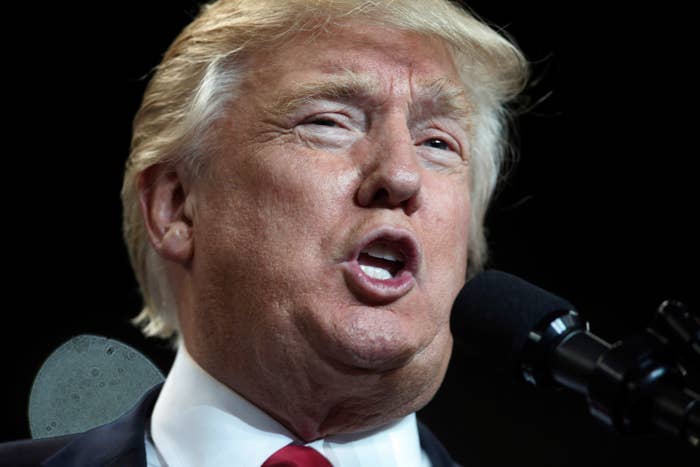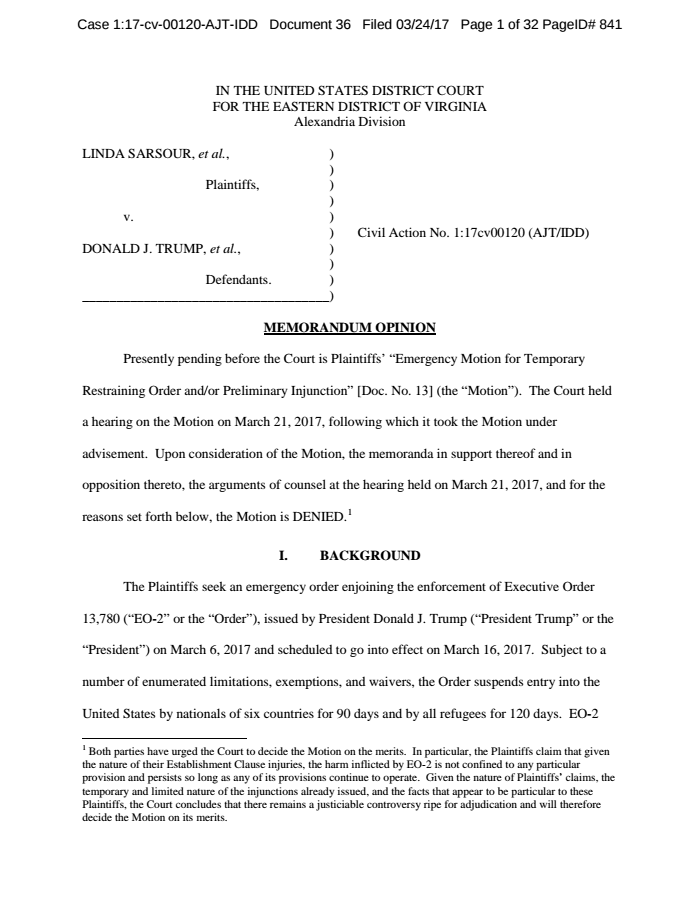
WASHINGTON — President Trump got his first court win on Friday in the challenges to his new travel and refugee executive order, as a federal judge ruled against a lawsuit backed by the Council on American–Islamic Relations in Virginia.
US District Judge Anthony Trenga, in a 32-page opinion, found that the plaintiffs in the case — Linda Sarsour v. Donald Trump — were not likely to succeed in their challenge to the March 6 executive order barring travel from six Muslim-majority countries for 90 days and temporarily halting the refugee program.
Due to the previously existing orders from other courts barring enforcement of both provisions nationwide, however, Friday's ruling does not, effectively, change anything on the ground.
Specifically, Trenga ruled that the challenge to the executive order was unlikely to succeed on the statutory claim that the order violates the Immigration and Nationality Act, and the constitutional claims that it violates the Establishment Clause or the Equal Protection Clause.
"In determining whether the Plaintiffs have made the required showing, the issue is not whether EO-2 is wise, necessary, under- or overinclusive, or even fair. It is not whether EO-2 could have been more usefully directed to populations living in particular geographical areas presenting even greater threats to national security or even whether it is politically motivated," Trenga wrote.
The legal issue before him, Trenga wrote, "is whether EO-2 falls within the bounds of the President’s statutory authority or whether the President has exercised that authority in violation of constitutional restraints."
Trenga placed great weight on the significant changes made between the first and second executive orders on the issue and concluded that the executive order likely did fall within the president's authority. While he did take Trump's campaign and other statements into account, in addition to those by advisers like Stephen Miller, Trenga concluded that the new order is clearly enough within the president's authority that the statements do not render it unconstitutional.
"[T]he substantive revisions reflected in EO-2 have reduced the probative value of the President’s statements to the point that it is no longer likely that
Plaintiffs can succeed on their claim that the predominate purpose of EO-2 is to discriminate against Muslims based on their religion and that EO-2 is a pretext or a sham for that purpose," he wrote.
Two high-profile provisions of the executive order — the 90-day travel ban and 120-day refugee ban — remain unenforceable currently. That's due to a temporary restraining order issued by a federal court in Hawaii and a preliminary injunction — currently being appealed by the Justice Department — issued by a federal court in Maryland.
In a sign of the difficulties faced by the administration in defending the executive order, however, a new lawsuit was filed in federal court in Washington, DC, on Friday morning by the Universal Muslim Association of America and two anonymous individuals — challenging the temporary travel ban, but also challenging the Iraq-specific section of the executive order (Section 4).

